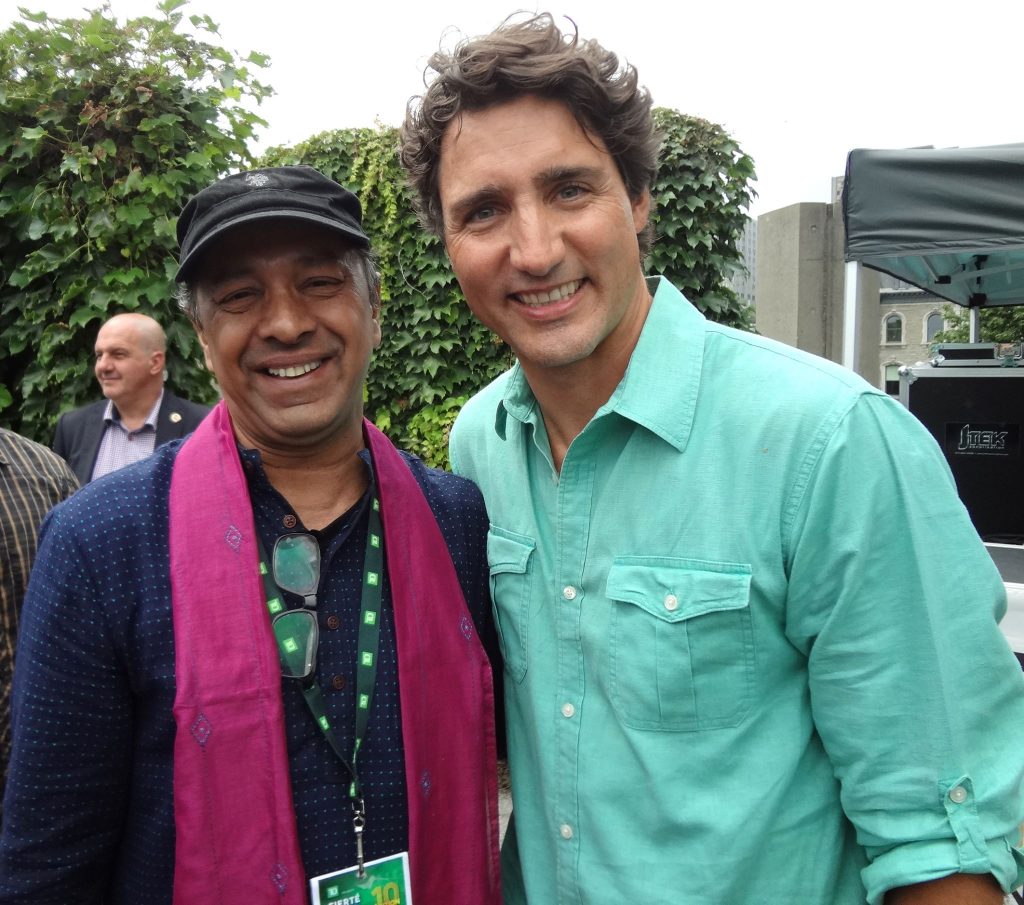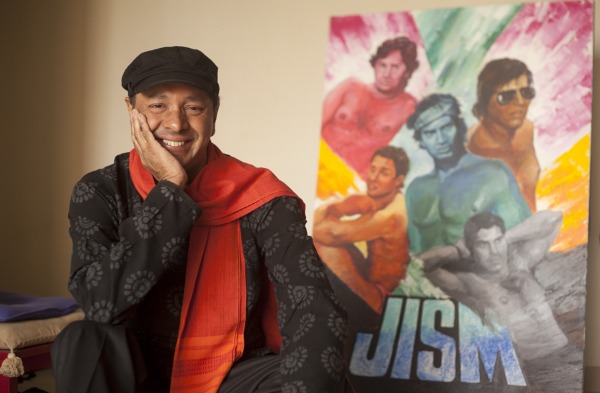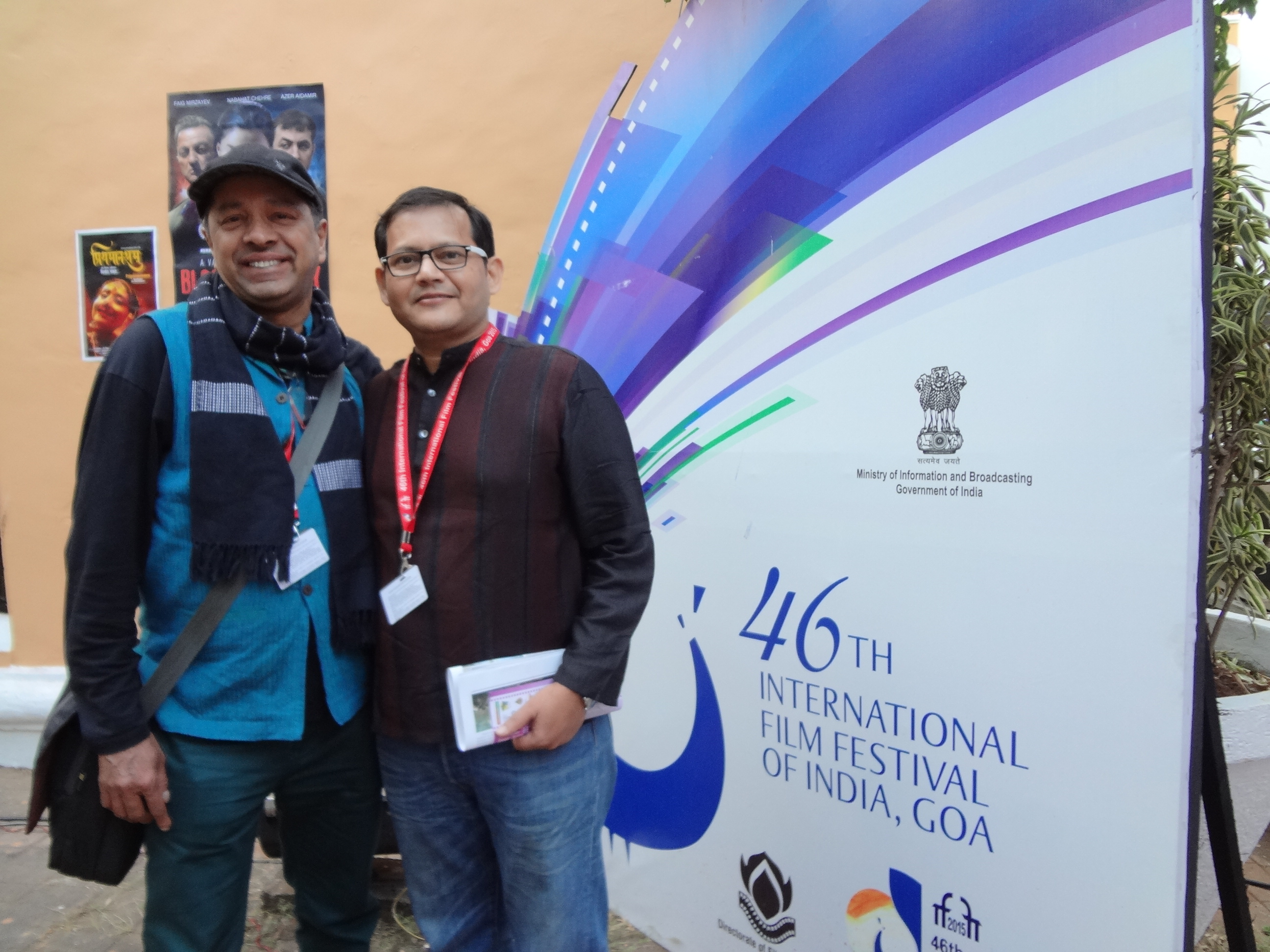
Sridhar Rangayan wears many caps – of a filmmaker, writer, activist and festival director. He consistently strives to give a voice to social issues in India through his films, writings and public speaking for over two decades. He is one of the Co-Founders of The Humsafar Trust, which was founded in 1994 and still is one of India’s largest community based organization working on HIV/AIDS intervention. He served on its board for 19 years. He also was one of the core team members of Bombay Dost, India’s first gay magazine that was launched in 1990. As Pride Month winds down, MTTN had the privilege to interview this LGBTQIA+ icon.
- What drove you to finally create Solaris pictures and produce queer films?
After my graduation from NITK Suratkal, I switched tracks to pursue a Masters of Design in Visual Communication from the Industrial Design Center at Indian Institute of Technology, Bombay. Filmmaking caught my fancy and I developed my craft assisting renowned filmmakers Sai Paranjpye, Kalpana Lajmi and Dev Benegal on their feature films and TV serials. Starting off as an independent director, between 1998 and 2000 I wrote, directed and co-produced about 40-45 telefilms which were 1-hour stand-alone episodes for serials like Rishtey and Gubbare on Zee TV, Kagaar and Haqeekat for Sahara, Kahaani Jurrm Ki for Star and directed several TV series like Krisshna Arjun, Style Apna Apna and Pyaar Ki Kashti Mein.
While it was a great time as we could really do qualitative work then on TV, spanning drama, comedy and thriller genres, and I enjoyed it immensely. I felt however, that there was no space for stories that were away from the hetero-normative narrative (though we did introduce a gay character in an episode, or had oblique homo-social bromances in some!). But when we proposed a simple gay love story for one of the telefilm series, we were told by the channel that family audiences were not ready for it.
So in 2001, Saagar Gupta (writer, art director and lyricist) and I co-founded Solaris Pictures to make content that we believed in, and which we felt were needed urgently to represent our own community’s stories. Since our first production The Pink Mirror (Gulabi Aaina) there has been no looking back.
- What were the structural obstacles, created within your own profession that held you back?
When we decided to make LGBTQ themed films under our company banner, the main challenge was to find the finances required to make the films. Our first film The Pink Mirror (Gulabi Aaina) was self-funded and got by thanks to a lot of favours from professionals that we knew from out television days. Our second film, ‘Yours Emotionally!’ was funded and co-produced by a friend in London. Though our first two films were good successes on the film festival circuit, winning awards and screening at almost 80 film festivals, we didn’t get any funding to produce our next project. While our next film 68 Pages was produced by The Humsafar Trust with HIV/AIDS funding, the next documentary Purple Skies was funded by PSBT (Public Service Broadcasting Trust), which is one of the very few organizations that supports independent films. Our next documentary Breaking Free, was both crowd-funded and self-funded, and our latest feature film Evening Shadows has been crowd-funded with 180 global contributors as well as Solaris Pictures’ own investment. So it has been an interesting journey.
Despite the challenges of funding, Saagar and I have managed to continue making LGBTQ films consistently, and we are delighted that our films have been appreciated all over the world. Many of them are part of gender & sexuality resource material at universities across the world, and also government health departments. The films have been part of PhD studies in India and abroad.
The other big barrier is the censorship. Any film with a homosexual theme is considered ‘adult’ and mostly same-sex intimacy falls victim to the censor board’s scissors. That’s a big deterrent as it acts as a scare-away for producers, distributors and even actors. This curtails not only the reach of LGBTQ themed films to audiences, but also impedes production of more edgy LGBTQ themed films.

- Have recent Indian movies given you a sense that things may be getting better?
There have been occasional rays of hope. There are several mainstream films that have included LGBTQ characters in a sensitive and often central roles – like Aligarh, Margarita with a Straw, Angry Indian Goddesses, Kapoor and Sons, etc. – but they are few and rare. However the production of amazing Indian LGBTQ short films, documentaries and independent features as well as web series have been on the rise. This year at KASHISH Mumbai International Queer Film Festival we received 66 Indian LGBTQ films, out of which we programmed 33 films! Naturally this year’s Country in Focus at KASHISH 2018 was India. We were proud to present a diversity of LGBTQ stories with some very nuanced, edgy and candid portrayals. Amazingly there were 7 feature films in this panorama.
So a lot of professionals, amateurs and students are making LGBTQ themed films, but what they lack is financial resources (because of which, their projects at times lack technical finesse), and platforms for distributing the films to reach wider audiences.
- As the Transgender Persons Bill takes shape, do you still think India has a long way to go?
It was a great victory when transgender persons were recognized as third gender by the Supreme Court judgment in April 2014. The landmark NALSA judgment gave a directive to the government to treat our transgender community in line with other minorities officially categorized as “socially and economically backward”, to enable them to get quotas in jobs and education. The implementation of this however, is woefully lacking. While perhaps the intent is there, policies are not in place, and transgender persons still face a lot of discrimination and violence.
- As a filmmaker, do you prefer activism to be a byproduct of your art or do you consider it to be a part of the art?
That’s a good question and something I have been constantly thinking about. For Saagar Gupta and myself, and our company Solaris Pictures, the main aim is to produce films that depict our LGBTQ community in a sensitive way.
For us, art and activism go hand in hand – ‘artivism’, as they call it. Our films combine advocacy and entertainment – what we call ‘Advotainment’. So each of our films, while set in a popular format for mass consumption, also has embedded messages that you take back home to reflect upon. Like in our first film The Pink Mirror (Gulabi Aaina), which is a campy comedy with two drag queens, a gay man and a bisexual hunk, the message of transgender empowerment and attitude towards HIV+ person is intrinsic. Similarly with our film 68 Pages set in a mainstream format with song and dance, the strong message that being HIV+ is not the end of the world comes through clearly.
I would like our films to be catalysts of change, to transform attitude of people about LGBTQ community. I strongly believe that art, culture and films are very important tools to spark dialogues and create impact about underserved issues.
But if your film or art is purely steeped in activism, it may have limited appeal. Our latest film Evening Shadows, a heartwarming story about a mother and son bond that is put to test by harsh truths, is our most ambitious feature film where we have created a beautiful ambience and enhanced it with the best of technical finesse. Even the censor board members who reviewed the film felt that this film should reach the masses and gave it a UA certificate, which is indeed a very positive testimony for the film, which has already traveled to 17 international films festivals in 3 months and won two awards.

- When Doordarshan telecast Purple Skies, did it sink in at the time, the magnitude of that groundbreaking achievement?
Our documentary feature on LBT (lesbians, bisexual women and transmen) community Purple Skies, produced by PSBT India and co-produced by Solaris Pictures, received a U certificate by the censor board, which indeed was a landmark decision. And then it was telecast on Doordarshan, reaching out to millions of homes across India. We received so many emails and messages, it was very heartening. It was important to reach out with stories of the LBT community – both of anguish and of joy, to talk about the double discrimination they face in India – being a woman, and also having a different sexual orientation. Purple Skies brought their issues out of the closet.
But what was unexpected, and even more difficult to sink in, is our next documentary feature Breaking Free winning the National Award for Best Editing (non-fiction) and also being part of the prestigious Indian Panorama. That was a great recognition for a LGBTQ film that lays bare the horrors of Sec 377, and the need for it to be read down urgently. It was a huge honour to receive the award from the President of India with NDA government officials in attendance. The film is now on Netflix, carrying an important message about Indian LGBTQ community far and wide.
- Tell us about the experience of being chosen as a Grand Marshall at the Montreal Pride Parade, alongside Prime Minister Justin Trudeau.
While the National Award for Breaking Free was a huge impetus to our work on the national front, being invited to be one of the Grand Marshals of Montreal Pride offered great visibility to our work on an international scale. To be able to speak about Indian LGBTQ movement and its struggles in front of Canadian Prime Minister Justin Trudeau was indeed a huge honour. More than the thrill of being cheered on by thousands of people on the streets as I danced in an open car to Bollywood beats, what was more heartwarming was the international focus that was brought on our Indian LGBTQ community’s demand for equal rights and dignity. I will always cherish those moments.
- Finally, the last hearing of the constitutional bench reviewing Section 377 is set for next month. In light of recent similar judgements, are you optimistic?
It has been a long battle for over two decades – trying to have the law Sec 377 amended. If you watch the film Breaking Free, one can see the journey of the litigations and the impact it has on the community – it is a like Bollywood potboiler with its twists and turns. But every drama has to have a climax, and we feel that the end for Sec 377 is near. When it started off it was a lonely journey of a few people, now there is a large sea of LGBTQ community that is visible and crying out for change. There is also a huge support by allies and stakeholders across the board as well as international support.
The legal challenge has also been strengthened by the number of petitions being filed and by the diversity of the petitioners. Adding to the petition by celebrity artists, designers & chefs, there have been petitions by The Humsafar Trust, which is the biggest grass-root community organization in India, numerous individuals like Keshav Suri, Arif Jafar, etc. and the petition by Pravritti, a pan-IIT group. I am part of this petition which has 20 signatories who are students or alumni of IITs across India. We demand reading down of Sec 377 in order for students to have a non-discriminatory and stress-free environment to study and graduate with flying colors. It is also a demand for being able to find jobs that are suitable to one’s skills and aptitude, without being stigmatized for your gender identity or sexual orientation.
All of us want to live in a free India, and that can only happen when we have equal rights as citizens. This has to be guaranteed by the world’s largest democracy. Immediately. Period.
Interview by- Ashutosh Sinha, Anushna Sen, R. Suhita and Poorvaprabha Patil

Leave a Reply
You must be logged in to post a comment.